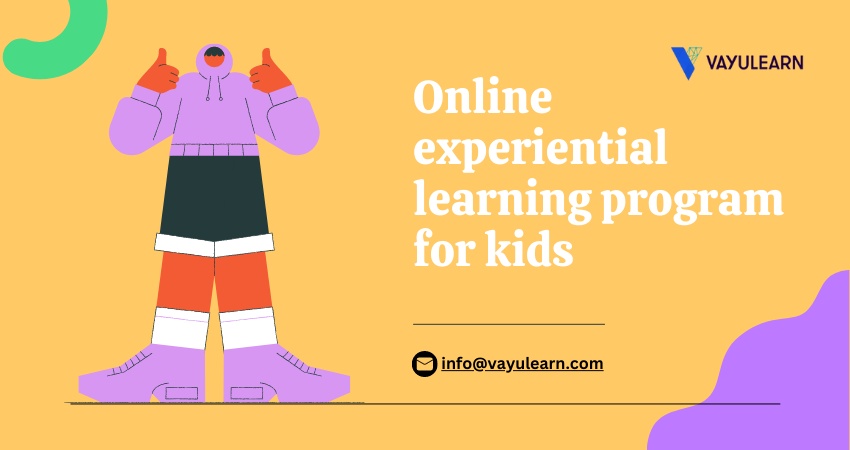Experiential learning ideas describe learning experiences that play an important role in children's development. In the realm of education, experiential learning stands tall as a transformative approach. It emphasizes the significance of hands-on experiences and thoughtful reflection, enabling students to forge meaningful connections between classroom teachings and real-world scenarios.
The realm of experiential learning offers an array of opportunities, both within and outside the curriculum. Engaging in community service, partaking in service-learning initiatives, delving into undergraduate research, exploring study abroad or away programs, and undertaking culminating experiences like internships, student teaching, or capstone projects are just a glimpse of the countless avenues available.
Importance of Experiential Learning In Early Childhood Education
Experiential learning harnesses the transformative power of real-world application, creativity, reflection, embracing mistakes, and emotional engagement to revolutionize education. By implementing this approach, we empower students to develop a deeper understanding, ignite their creativity, forge meaningful connections, and cultivate a positive attitude toward learning that transcends the boundaries of the classroom.
Grasping Complex Concepts through Real-World Application:
Traditional teaching methods sometimes fall short in connecting students with abstract concepts that seem detached from real-life contexts. However, the transformative approach of experiential learning offers a remedy. By immersing students in real-world situations where they actively apply data and ideas, the learning process becomes tangible and relatable. As students engage with the information in practical settings, they develop a deeper understanding and connection with the subject matter, making it more meaningful and relevant to their lives.
Igniting Creativity through Real-World Problem-Solving:
Experiential learning stands as a beacon for fostering creativity and honing problem-solving skills. By exposing students to real-world content, this approach instills the understanding that challenges have multiple solutions. Encouraging students to seek unique approaches to hands-on tasks, experiential learning ideas empowers them to think outside the box, explore innovative ideas, and embrace diverse perspectives. Through this process, students not only become more adept at solving problems, but also develop the confidence to approach challenges with creativity and flexibility.
Reflection: The Key to Deeper Connections and Transferable Knowledge
The integration of concrete experiences with abstract concepts lies at the heart of experiential learning. By engaging in hands-on activities and reflecting on the outcomes, students activate multiple regions of their brain, forging stronger neural connections with the material. This introspective process allows students to analyze the impact of their actions on the given issue and compare their outcomes with those of their peers. By critically examining these experiences, students gain a comprehensive understanding of how the learned concepts can be applied in diverse circumstances, preparing them for real-world challenges beyond the classroom.
Transforming Mistakes into Valuable Learning Opportunities:
In the realm of experiential learning, mistakes are not feared but valued as integral components of the learning journey. Through hands-on tasks, students inevitably encounter approaches that work better than others. However, instead of viewing such instances as failures, experiential learning encourages students to embrace them as valuable experiences. By recognizing the power of trial and error, students develop resilience, adaptability, and a growth mindset. They learn to iterate, refine their approaches, and discover innovative solutions, preparing them for future endeavors where learning from mistakes becomes a stepping stone to success.
Cultivating Positive Attitudes towards Learning:
By actively participating in the learning process, students experience a sense of fulfillment and gratification. This active engagement not only boosts their motivation but also cultivates a positive attitude towards learning. Students become more invested, enthusiastic, and eager to explore new concepts, ultimately paving the way for lifelong learning and personal growth.
Improves Problem-Solving Skills:
Through experiential learning, children learn how to tackle obstacles and issues. They discover methods to overcome problems and barriers, as well as how to determine the best route for them via trial and error. These skills help them to serve them in life.
Encourage imagination and analytical thinking:
Experiential learning in early childhood education promotes imagination projects and the development of skills for problem-solving in children. They can improve their analytical and problem-solving abilities by repeatedly doing so. Their abilities will benefit many aspects of their daily lives, from school to employment to interactions.
Accept education as a devotion:
When learning is interesting and pleasurable for children, they are more inclined to gain a passion for knowledge. This might spark a lifelong passion and exploration. It may help students understand the importance of learning and encourage them to continue learning soon after they depart the learning environment.
Benefits of Experiential Learning
When children focus on a subject or topic suitable for their age's difficulty, they grow and learn. Experiential learning in early childhood education provides an engaging alternative to standard classroom learning. This style of learning increases children's growth and development:
Memory storage:
When children are permitted to act on information and are completely engaged in it, they get a better grasp of it. When a youngster links motor functions with new knowledge, synapses (nerves inside the brain) build stronger connections, resulting in better memory retention.
Experiential learning ideas requires dedication and focus because it is a task in which children may engage. As a result, the class becomes an additional personalized practical discovery activity.
Life-skills advancement:
Real-world experience is often obtained when children encounter challenges and receive the opportunity to build skills in problem-solving to solve these issues. Encouraging children to actively engage in daily procedures can help them develop everyday abilities to aid their future development and education.
Mental development:
Learning through experiences provides children with a sense of achievement, which boosts their sense of self-worth and fuels their drive to study. Children learn to follow their dreams when they take responsibility for a problem and work with adults to support them.
Conclusion
Experiential learning in early childhood education is a significant technique for promoting comprehensive growth in early childhood education. Educators can uncover children's essential interests, analytical abilities, and social abilities by allowing them to take an active role in their surroundings. Children may start on a thrilling learning adventure that provides the framework for an extended period of research and growth via natural discovery, imaginative play, theatrical role-playing, involvement in the community, and STEAM-based projects.
Vayulearn is an online learning platform for kids. With our expert team and skilled teachers, we offer the benefits of experiential learning to kids aged between 8-16 years. Enroll today to get the best development for your kid. Visit our website to learn more aout the programe and our service.


No comments yet